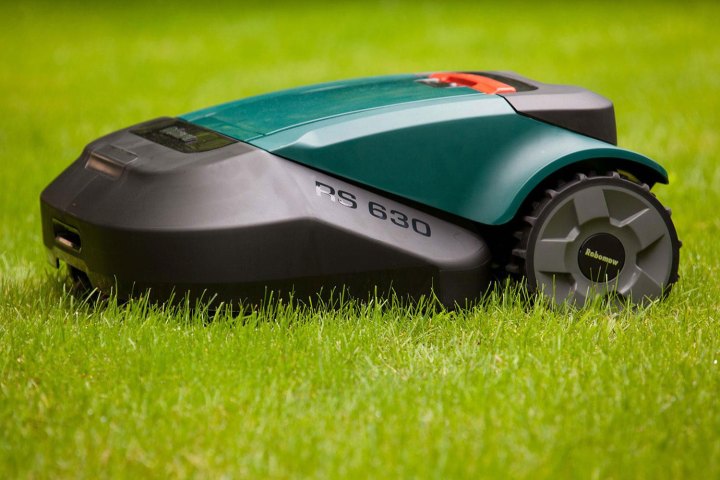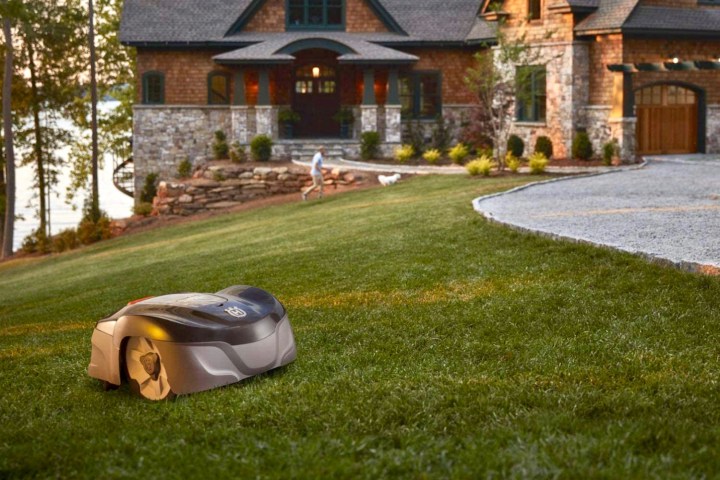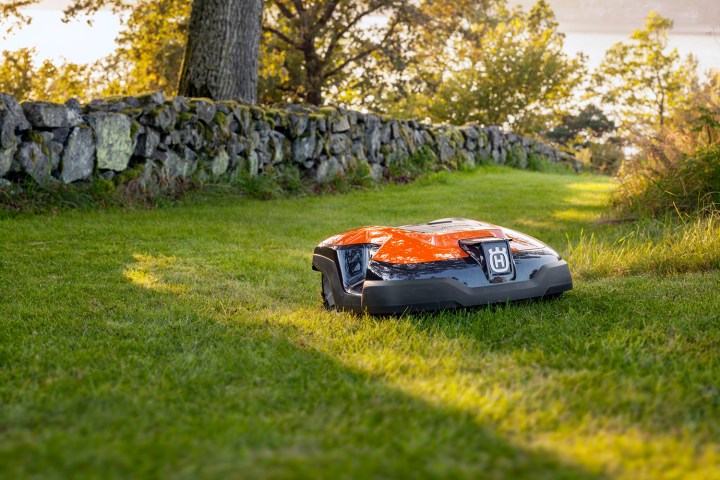Having a big backyard is great until it comes time to break out your lawnmower. Cutting the grass might be one of the most tedious seasonal chores on your task list — and heading out into the heat to spend hours of your day walking back and forth in straight lines isn’t the most exciting way to enjoy the sunshine.
Robot lawn mowers take this task off your plate, giving you a relatively easy way to keep your yard looking like a golf course without breaking a sweat. Many of these smart home devices are smart enough to seek shelter when it rains, navigate up the steepest of slopes, or turn to their base when their chores are complete. And in 2023, they come with a variety of price tags and can cut lawns well over one acre in size.
But is a robot lawn mower worth it? Or are you better off investing in a premium traditional lawn mower? Here’s a closer look to help you decide. And if you do end up adding one to your yard, be sure to check out our round-up of the best robot lawn mowers of 2023.
How does a robot lawn mower work?

Compact but efficient, robot lawn mowers run off of a rechargeable battery pack. The mower will cut and trim your entire lawn, automatically returning to its AC-powered base when the job is finished or if the mower needs a quick recharge.
Once you’ve unboxed your mower for the first time, a series of sensors will perform an entire scan of your property, storing the saved map to your mower and its companion app (if the mower has one). Most mowers will require you to lay a perimeter fence around your property, ensuring your bot won’t dodge into your neighbor’s yard or your treasured flowerbed.
Depending on the mower you purchase, the bot may use a single blade, multiple blades, or a rotating disc of fine blades to chop away at your grass. Unlike a hand-pushed or riding mower with bag attachments, the grass clippings themselves are reduced to fine particles that are used to re-seed the soil of your lawn.
Are robot lawn mowers expensive?

Generally speaking, it’s going to be difficult to find a robot lawn mower for less than $700. With some models rocking $4,000 price points, the initial cost alone may be enough to steer some folks away, but consider the advantages:
As long as you’re not dealing with grass the size of fully-grown corn stalks, your robotic mower will prevent you from ever having to manually cut and trim again. And, if you own a small- to medium-sized piece of property, a lower-cost robot mower may be all you need. Typically, higher-priced bots are equipped with bigger batteries to be able to handle larger lots. Otherwise, your bot will be heading back to its charger too often, prolonging how long it will take to finish a single cut.
Additionally, higher-priced mowers often feature more tech and customization options. Things like onboard rain sensors that automatically return the mower to its home base when precipitation is dictated and/or an intuitive companion app that allows you to set schedules and start/stop the mower remotely will inevitably bolster the price you’re paying.
Also, consider the potential long-term savings. For those who don’t mow their own lawns but pay a landscaping team instead, look at it this way: On average, bi-weekly lawn mowing from a third-party team will cost about $45 for the service. If you’re getting your lawn serviced six out of 12 months per year, that’s close to $550. With that math, an average-priced mower (around $1,200) will pay for itself in as little as a single year.
Can a robot lawn mower handle my lawn?

Robot lawn mowers are built to tackle all different types of acreage. You’ll see some of the most rugged bots handling steep 70% grades. Couple this with tough-terrain tires, and you’re talking about a mower that can handle just about anything you throw at it.
On average, you’ll see most robot lawn mowers capable of tackling up to 35% grades. While the moving parts of many mowers are designed to get your bot in and out of the tightest parts of your property, the flatter and less hole-filled your acreage, the better. That’s not to say that the average-priced mower can’t work its way out of a divot in your yard, but a build-up of obstacles like this can slow down your mower considerably. If you can fill in holes and improve your grading, you’ll be in better shape no matter what mower you may purchase.
In other words, the more expensive your robot lawn mower, the better it’ll handle uneven terrain or navigate up inclines. These devices aren’t light — so they’ll need a decent amount of horsepower to travel uphill.
The verdict
If you don’t mind throwing down some heavy upfront cash and have a decent piece of property that requires a ton of upkeep, a robot lawn mower can more than effectively lighten your workload. Like anything tech-related, there may be an initial learning curve involved and a bit of preliminary elbow grease (laying the perimeter wire around your whole property), but in the end, the benefits will far outweigh the cost. Time is money, right?
The same goes for smaller backyards. It’s now possible to find a reliable robot lawn mower for just $700, and since small backyards should have fewer obstacles to avoid and tend to be rather flat, you’ll see remarkable performance that results in a pristine yard. Of course, using a traditional lawn mower to tackle a small backyard might not be very time-consuming — but there’s no doubt robot lawn mowers are a great option if you have a busy schedule.
In a nutshell: Your friends at Digital Trends give a big thumbs-up to the world of robotic mowing.



